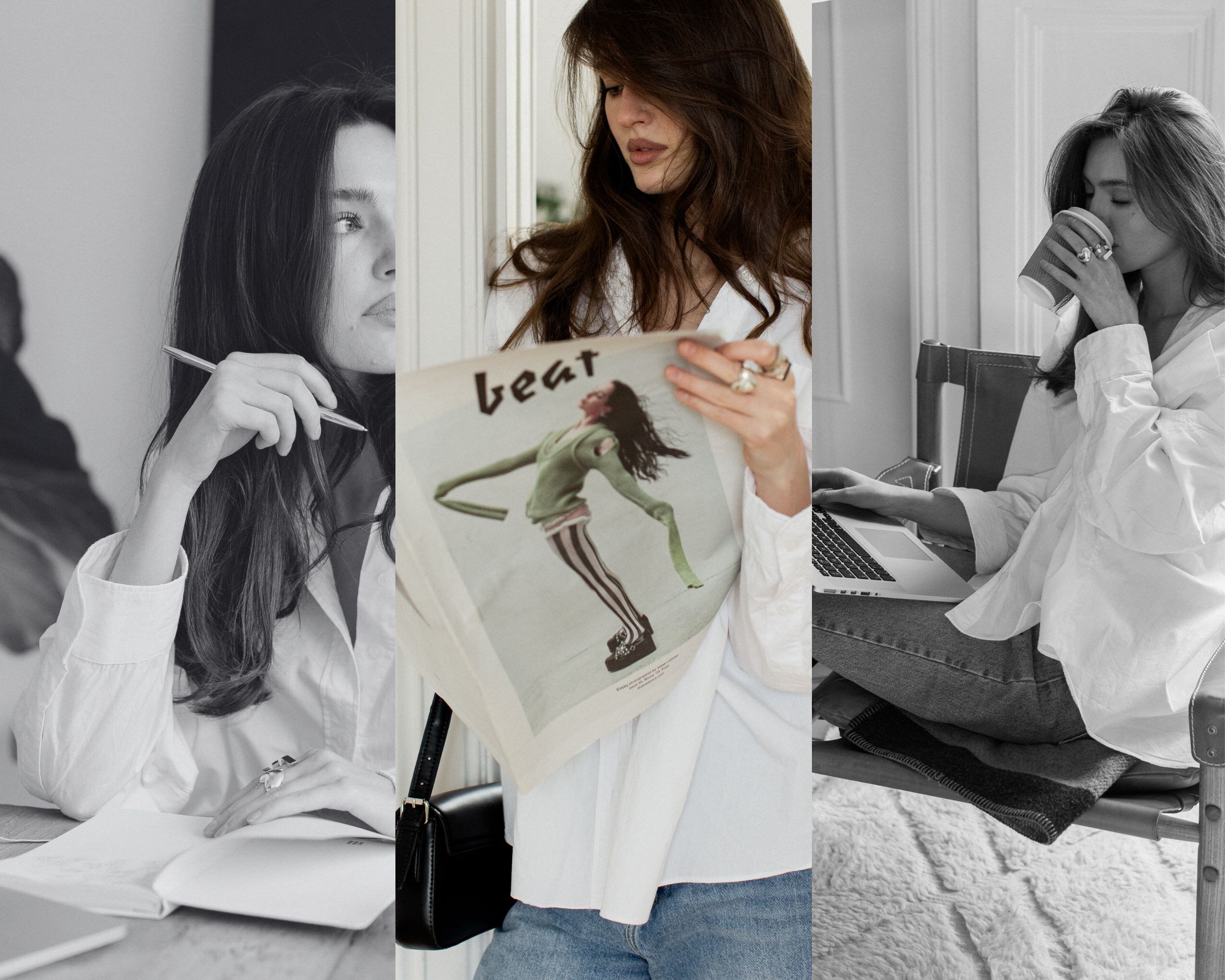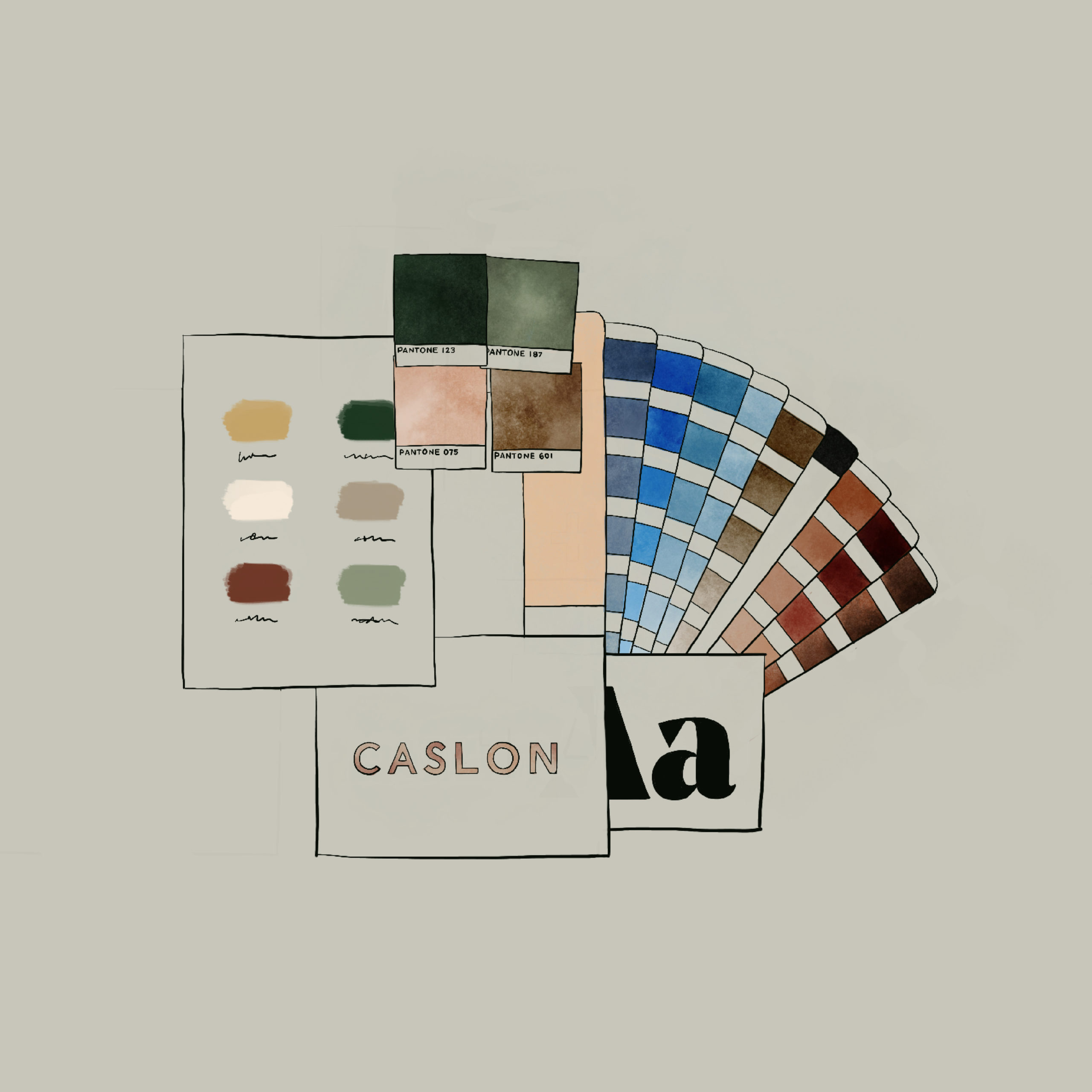A few weeks ago, I had an epiphany.
Just like most of our clients, I’m constantly working on the Drop Cap brand behind the scenes and trying to find patterns and insights that will move the business forward. I was explaining what I do to a new friend and she asked who I typically do branding projects for (she had a family friend in mind and wanted to know if I would be a good fit!)
I knew right off the bat after a few questions that I wouldn’t be, and it made me curious if there was a mental rubric I was using that could be broken down into a list of sorts that I could share with Madeleane, who is our communications and project manager.
Turns out, we work with 4 categories of “personalities” within the online space that result in our best working relationships and projects. It’s ironic that we wouldn’t just work with one type of client, but rather four clear personalities since I also do a lot of work with the Enneagram.
But I digress.
Today I want to share those four personalities and what I’ve found interesting about each one as I dive deeper into the archetype.
The Four Brand Personalities
The Influencer Brand Personality
Blogger, Speaker, Teacher
The Influencer has a story to tell. Typically a personal brand, this online business is looking to build an online platform and attract a captivated audience to share it. It’s important during this branding process to keep the person behind the business as the focal point, because an audience is captivated by that individual’s point-of-view.
An Influencer business is not necessarily a team of one. Examples of strong Influencer brands are Oprah, Marie Forleo, Jenna Kutcher, and Rachel Hollis. Certainly none of these women have accomplished such massive success independently, but it’s their name and perspective that we come to recognize.
I’d also important to point out that an Influencer personalities don’t always need to be the person’s name. An example of a strong Influencer brand that has created a clever company names is Goop.
Many brands are influential, but what makes a business an Influencer personality?
The key factor in an Influencer brand is that their main characteristic is cultivating and sharing their unique perspective. Their opinions and advice keep an audience coming back for more. If the main face of the company were to leave, it would be incredibly difficult for the business to keep operating, because it’s the relationship that one person has created with a large audience that creates impact.
When working on an Influencer brand, my main goal is to define the audience that is the best fit for their point-of-view, because the business will succeed based on the size of their following. Numbers are most important here, and an Influencer is most likely to attract a larger following when they have become experts in what their “thing” is that they want to be known for and then consistently lean into it.
The Talent Brand Personality
Photographer, Copywriter, Filmmaker, Designer
The Talent has a specific skill to share. This is different than an agency – a Talent brand truly focuses on marketing one distinct service category that they have refined and perfected. They are looking to build a client list that’s the perfect match for their style and process. During branding, it’s important to make sure that the brand design doesn’t compete with the portfolio (even if it’s not a visual service) because the skill is most important to a potential client lead.
A Talent brand may start out as a team of one, but it’s not the goal. As the business grows, other junior Talents may join in, because it’s not so much about the perspective of one as it is maintaining the philosophy of the brand. For instance, a photographer may hire out an editor or even have a junior photographer assist.
Many brands are filled with talent, but what makes a business a Talent personality?
The key factor in a Talent brand is that their focus is curating a strong client list, body of work, and testimonials. The experience of their clients attract new clients who value what they have to offer. The reputation of the business as a whole depends on a mutually positive dynamic between the Talent and the Client.
When working on a Talent brand, my main goal is to define what kind of client is going to best guarantee a positive experience. This brand isn’t as concerned with numbers, because just a handful of really great projects with happy Client testimonials can launch a Talent brand into the realm of success and opportunity.
The Maker Brand Personality
Artist, Craftsman, Chef, Product Designer
The Maker has a beautiful product to sell. They are a creator and artist in their own sense – no matter what they make – and they’ve chosen to make that piece of art available to others. What they need is a group of customers who will get equally excited about the things they’re making. During branding, we focus on highlighting what makes their product unique and valuable – because the end product is the main focus.
A Maker brand is focused exclusively on the product, but many of those customers are going to see the value of that product by seeing and hearing about the life of the artist. And if there’s a team behind the making of the product, seeing each person’s enthusiasm for their work and why they find meaning in it all adds to the value of the product.
Many brands have high quality products for sale, but what makes a business a Maker personality?
The key factor in a Maker brand is finding a customer base that needs and wants the product they’re making. Seeing the many different uses for the product, how it’s made, and the heart and soul of the company behind it are all important. But to take it a step further, many successful Maker brands actually create a lifestyle around the product itself, and they’re selling more than the tangible product, but the lifestyle that the product lives in.
When working on a Maker brand, my main goal is to find out what features of the product need to be highlighted, and how we can place the product within a larger lifestyle. This brand isn’t just about the artist behind it, but the two can work together in order to create a compelling customer story.
The Guide Brand Personality
Coach, Consultant, Advisor, Healer
The Guide has a message to promote. This personality can look similar to the Influencer personality, but what makes them different is that their story and message come from a set of beliefs – whether it’s focus is on strength building, spirituality, astrology, manifestation, leadership, etc. They have mastered a certain mindset, and they’re helping others master it too.
A Guide brand is focused on the ultimate message first. So if it’s an astrologer, then the practice of astrology is more important than the astrological guide. The way to stand out as a guide is to find your own flavor or style of teaching a larger belief in your own way and through your own experiences with it.
Many brands have a message and deep rooted belief system, but what makes a business a Guide brand?
The key factor in a Guide brand is the entire business structure is based on a teacher/student relationship. This isn’t always someone who may see themselves as a teacher, because even a yoga instructor or nutritionist would be considered a Guide brand, because they have mastered a practice that they are now sharing with others who value the same things.
When working on a Guide brand, my main goal is to help them define and showcase their unique teaching style. This brand is focused on the personality of the teacher and their knowledge and expertise on the subject they are guiding and teaching on.
Want to get started on your own personality-based brand?



